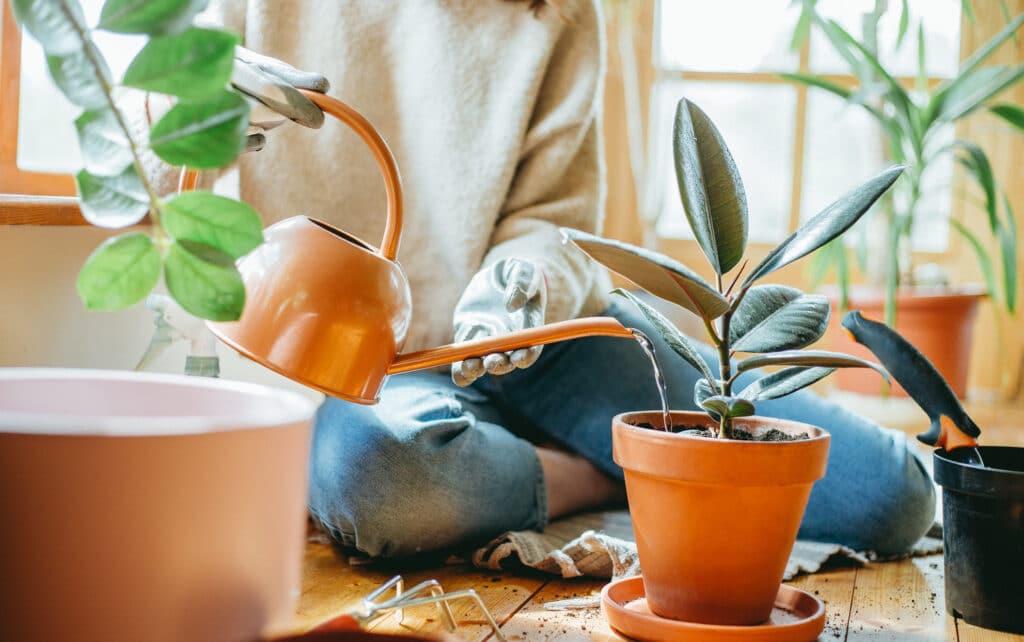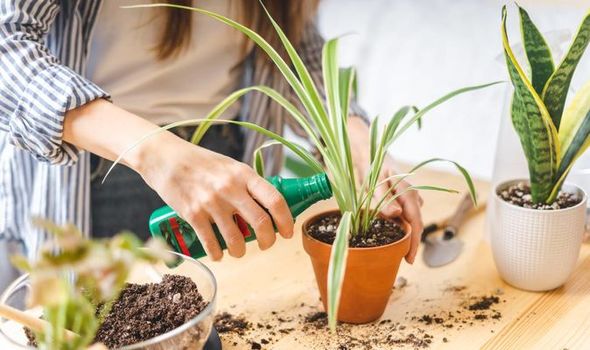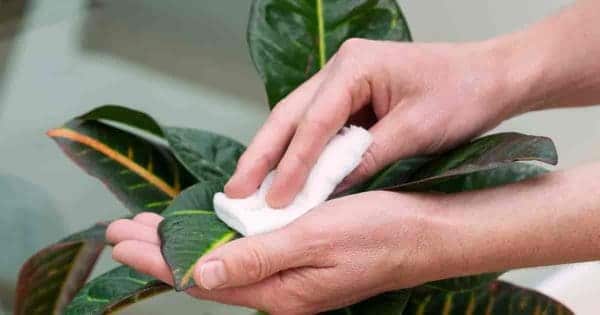As Winter gets colder we start to turn up the heat in our homes to keep comfortable. Houseplants will also need some changes so they can rest for the coming year. Readying plants involves protecting them from temperature highs and lows, and lower light levels.
Here are some tips to help you adjust to the Winter season.
Less water
Most plants’ growth slows down in Winter. Therefore your potted plants will need less water than they used to take in warmer weather. Overwatering can lead to root rot, especially in the winter. However, this does not mean that you should ignore them completely!
Check the soil
Monitor the moisture of your plant regularly by checking the soil. You can do this by using a moisture meter or feeling the soil using your finger a few inches below. You might also prefer to check the weight of the pot. If its lighter than normal, it’s likely ready for a drink. If it’s still heavy from the previous watering, you can likely wait.
How to water
Be sure to water thoroughly—the roots of tropical plants generally like heavy (but infrequent) watering. As always, be sure to remove any excess water from your plant’s saucer once you’re done watering.
For more tips you can read on how to water indoor plants correctly on our blog.

Humidity
Your plants will appreciate increased humidity during the winter months. Many homes are very dry in the winter due to heaters and fireplaces, and many houseplants are sensitive to dry air. Grouping indoor plants together is an easy way to create more humidity because it creates a microclimate by trapping the humid air created as plants naturally transpire, or release water vapor, from their leaves.
If you want a more in-depth look at humidity, here’s how to increase the humidity for your indoor houseplants.
Mind the temperatures
Be conscious of where your plants are located in your space. You may need to move them away from drafty areas or cold window panes in order to protect them from the cold temperatures outside. It’s also equally important to be aware of heat sources such as heating ducts, radiators, and fireplaces.

Do I still use fertilizer?
In colder weather most plants stop growing, especially if they are getting less light. During this time, plant food can do more harm than good because plants will not fully utilize the nutrients and it can upset the natural growth cycle of the plant. However, if your plants are actively growing during the winter, it is okay to fertilize them as normal.
Keep your plants clean
Be sure to keep your plant clean and dust-free. Insects love to hide out in dust on the leaves, which makes it harder for you to find them. Your plant may be more vulnerable in the winter if it has gone into a state of dormancy, which makes it unable to outgrow pest damage.
Wipe your plants’ leaves regularly with a microfiber duster and remember to remove any dead or yellowing leaves with a pair of clean, sharp scissors.
